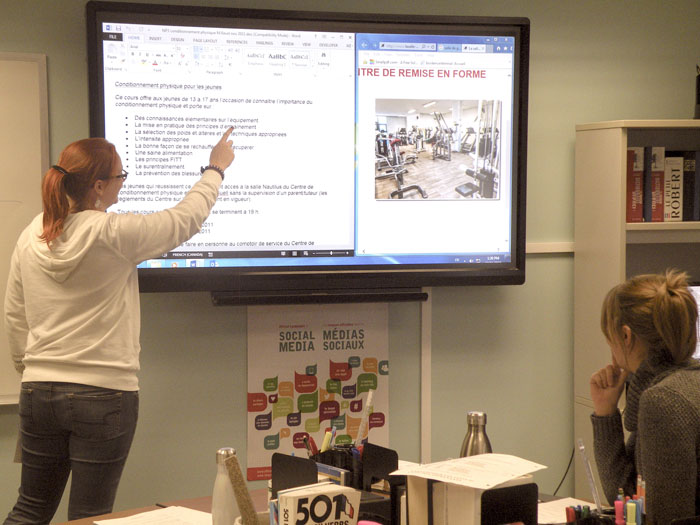I completed the NLA1 initial workshop given in Gatineau for the Canadian Forces Language School in June 2018. Some of the techniques we were shown and that we put into practice left me wanting to experiment with my learners.
The specific constraints of the environment in which I teach do not allow me to implement a 100% NLA approach. However, two elements stood out for me, and I have used them regularly since attending the workshop.
The first of these is ‘Stimulating listening’. I loved the fact that the learners’ level is irrelevant in this strategy. Using this lets me “hook” inattentive learners in a discreet and effective way, but also means I can ensure that the group is really listening to what their colleagues have to day. It’s so simple, just using natural expressions like ‘What did X just say?’, ‘What did Y manage to say’, or ‘What did Z end up saying?’ I implemented this ‘stimulating listening’ strategy on the second day of training with a group of beginners, and there was a noticeable improvement in their global attention level in the first ten days of training. It also allows me to put structural automatisms in place that I can use later.
The other element I immediately started to use is the sequence of strategies recommended for the writing stage. Here I really have fun! In groups, my learners quickly proved capable of producing short, information-rich texts. Just yesterday, my group produced a text to introduce the class to their new teacher. They pulled out a dozen sentences. They surprised me by reusing what they’d just practiced orally, without prompting, from jobs to feelings, not to mention salutations like ‘Welcome’ and ‘Good luck’. The sentences were written on the board, some mistakes were caught by the learners themselves, then the group put the sentences in a logical order, creating paragraphs. Some points were discussed and voted on. I was able to subtly bring in logical links to connect the sentences. I was already enthused by the method when it was presented in my NLA workshop, but the results produced by my learners in the classroom proved to me that the approach is not only logical but solid. Writing personal texts is so much easier and more accurate when oral production and writing in groups are used before putting pen to paper.
Maud R.
Educational consultant
École de langues La Cité




